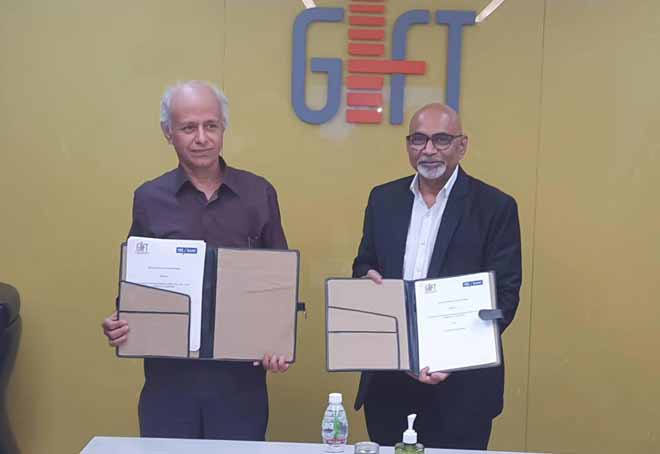Micronutrient mix for spice crops offers lucrative biz model
Updated: Feb 04, 2014 06:18:10pm

The Institute has offered business opportunities to entrepreneurs who want to produce and market these micronutrients on a commercial scale.
The products are in the process of patent protection and commercialization. Entrepreneurs who want to produce and market these mixtures on a commercial scale can approach the institute for getting non-exclusive licenses.
The Institute Technology Management and Business Planning and Development Unit (ITM-BPD Units) at IISR also help the entrepreneurs to prepare business plans for establishing manufacturing units. The BPD unit also provides consultancy services for commercial production. The mixtures are available at IISR Chelavoor campus as well as at Krishi Vigyan Kendra, Peruvannamuzhi.
India - the land of spices is the biggest producer, consumer and exporter of spices. The country grows over 50 different varieties of spice and produces around 2.7 million tons of spices. Around 0.25 million tons of our total produce (8-10 per cent) is exported and the Indian share of the world trade in spices is 45-50 per cent by volume and 25 per cent in value. In other words, spices sector account for 6 per cent of the agricultural GDP of the country. No wonder, spices plays a pivotal role in Indian economy.
The flavor and fragrance of spices depend on the soil on which they are grown. Continuous exploitation of this precious soil without replenishing the nutrients, especially micronutrients, results in low yield, poor quality of the produce besides making the crop susceptible to pests and diseases.
Indian Institute of Spices Research (IISR) in Kozhikode, a premier research organization on spices under the Indian Council of Agricultural Research (ICAR), New Delhi has developed a nutrient mixture which recharges the soil with essential elements and ensures high yield from spice crops.
In India, spices are grown mainly in red and laterite soil of South India, Western Ghats and North Eastern states where soil is highly weathered and low in nutrient status. The productivity is found to be one of the lowest compared to other competing countries and the reason is mainly attributed to improper management. In spices, quality of the produce, amount of oil, oleoresin, curcumin etc are more important as the export basket is mainly concentrating on value added products of spices.
Soil under Pressure
“Adoption of high production technology and cultivation of high biomass producing high yielding varieties have put enormous pressure on soil nutrient reserve and this has led to great imbalance in nutrient pools in the soil,” says Director of Indian Institute of Spices Research (IISR), Kozhikode, M Anandaraj.
“A large chunk of soil has been rendered deficient in micronutrients, which is one of the major reasons that our crops have stopped responding to high analysis NPK (Nitrogen, Phosphorus and Potassium) fertilizers. Low pH, Phosphorous toxicity, limited use of micronutrients, chemical fertilizers and application of inadequate quantities of organic manures have made the situation more complex,” says Senior Scientist, Soil Science, IISR, V Srinivasan.
Studies showed that 40-55 per cent of Indian soil is moderately deficient in Zn (Zinc), while 25-30 per cent is deficient in B (Boron). Deficiency of other micronutrients occurs under 15 per cent of soil. These deficiencies/limitations reduce yield significantly.
Micronutrients
Micronutrients are those essential elements like copper, manganese, zinc, iron, boron, molybdenum sulfur etc which are required by plants in very small amounts. Besides promoting plant metabolic activities and growth of the plants, they play a major role in improving quality, size, color, taste, earliness, input use efficiency of NPK fertilizers, water, disease resistance etc. A lesser-understood phenomenon is their role in determining quality and the post-harvest life of harvested produce. As these nutrients are costly and needed in very small amounts normally a fertilizer dealer will not stock them like other bulk fertilizers and hence farmers find it very difficult to correct micronutrient deficiencies.
“In order to find a solution for this serious problem, scientists at IISR have developed crop specific, soil pH based micronutrient mixtures for foliar application in black pepper, cardamom, ginger, and turmeric crops which guarantees 15 to 25 per cent increase in yield and quality,” adds Anandaraj.
An innate advantage of these mixtures is that they can also be used in organic agriculture and therefore are gentle and environment friendly. While organic manures enhance soil microbial activity and therefore nutrient transformation or mobilization, these mixtures are guaranteed to enhance both yield and quality of the crop produce.
“The technology is a low cost one and hence farmer friendly. For one acre crop, about 2 kg micronutrient mixtures costing approximately Rs 400 per spray are needed. For each crop two sprays at specific growth stages are recommended,” says Chief Technical Officer, IISR, S Hamza.
Crop Specific
The scientists also have standardized its application for various crops. For black pepper foliar spray @ 5g per liter water should be given once during spike initiation with the onset of monsoon and another after two months. For cardamom foliar spray @ 5g per liter water should be given once during panicle initiation and another after three months.
For ginger and turmeric foliar spray @ 5g per liter water once during 60 days after planting and another 90 days after planting is recommended.
The mixtures are soil pH based and are tailor made for acid soil (pH <7.0) and for neutral to alkaline/ sodic soils (pH >7.0). While increased yield and growth is possible due these mixtures, it is important to note that these mixtures should not be mixed with any other chemicals to save labour and time. Though these mixtures are essentially for spice crops, these can be used for increased yield in fruit and vegetable crops as well.
The mixtures were tested in six farmers’ fields in various parts of the country. Field trials in ginger were carried out in Kerala and Karnataka while turmeric was done in Kerala, Andhra Pradesh and Tamil Nadu. The micro nutrient mixture for black pepper was tested in Kerala and Karnataka states and cardamom in Madikeri, Karnataka. (KNN/PIB)











